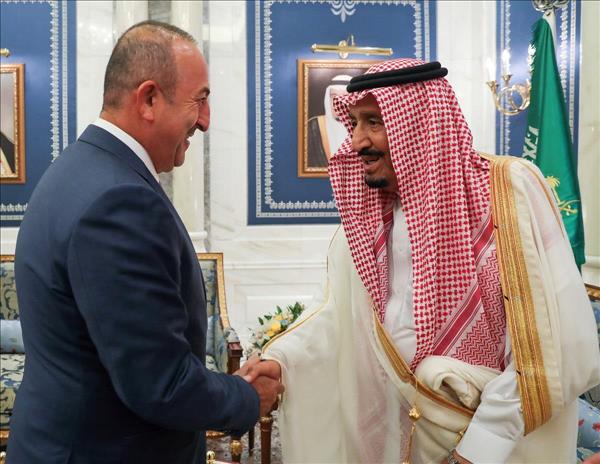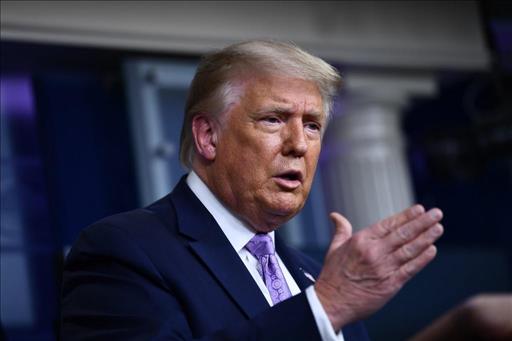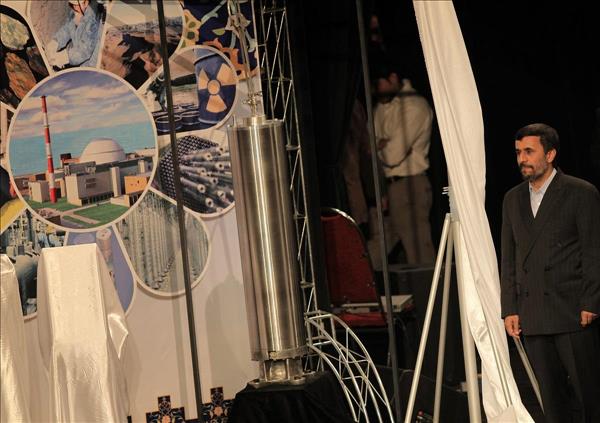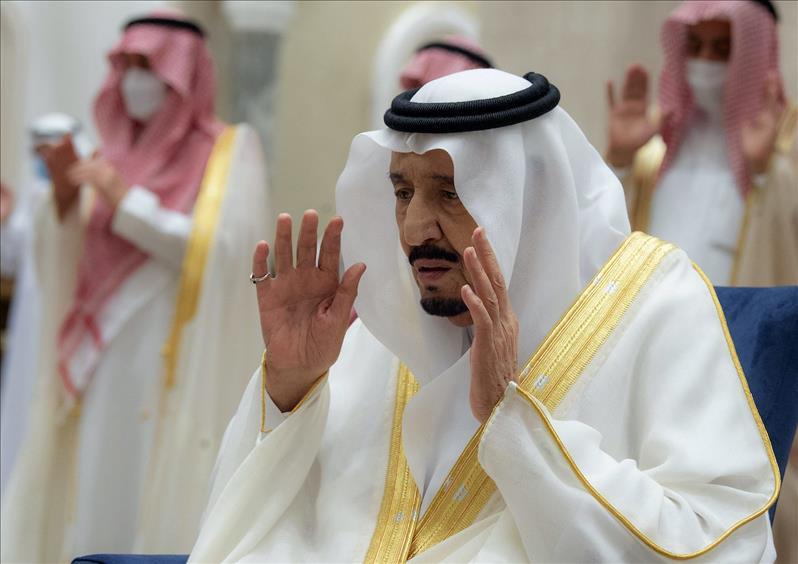
Saudi rolling back once bold regional ambitions
(MENAFN- Asia Times) On opposite sides of conflicts stretching from Yemen to Syria, recent years have seen little love lost between Iran and Saudi Arabia.
Yet, on May 10, Tehran finally confirmed what had been rumored for weeks: that last month Iranian and Saudi officials had met for Iraqi-brokered talks in Baghdad.
''We welcome resolving the issues that have existed between the two countries,'' Iranian Foreign Ministry spokesman Saeed Khatibzadeh said, confirming the meet-up on Iranian TV. ''We will use our best efforts in this regard.''
This announcement came the same day as another meeting between long-standing regional rivals, when Turkish Foreign Minister Mevlut Cavusoglu and Saudi Arabia's King Salman met in Mecca.
Ankara and Riyadh have been at loggerheads for years on issues such as the Saudi and UAE-led blockade of Turkish ally Qatar, and the 2018 murder of Saudi columnist and oppositionist Jamal Khashoggi.
Both meetings are clear signs of a major recent shift in Saudi Arabia's foreign policy – one driven by domestic and international pressures.
''There has been a strategic shift in thinking in Riyadh towards dialogue, rather than confrontation.'' Yasmine Farouk, from the Middle East Program at the Carnegie Endowment for International Peace, told Asia Times.
How far this shift can go, however, remains to be seen, as the issues that have divided the kingdom from Iran and Turkey in recent times remain deeply problematic.

Turkish Foreign Minister Mevlut Cavusoglu (L) meets Saudi Arabia's King Salman in Mecca in June 2017. Photo: Cem Ozdel/Anadolu Agency/AFP
Those issues range from Iranian support for Houthi forces fighting Saudi Arabia in Yemen, to Turkish support for Arab opposition groups such as the Muslim Brotherhood – an organization Riyadh sees as ''terrorist''.
''For these changes to be sustainable is very difficult, as there would have to be a change in security and defense policies around the region,'' Dr Abdolrasool Divsallar, from the European University Institute's Middle East Direction Program, told Asia Times.
Despite the difficulty and complexity, however, talking may still be a step forward in a region now beset by bitter conflict.
Change of heartRiyadh first embarked on a more assertive foreign policy in 2015, with the rise of Crown Prince Mohammed bin Salman – widely known as MBS.
That year saw the Crown Prince order Saudi troops into neighboring Yemen, while the Kingdom also took a more aggressive stance against Iran and its developing nuclear program.
After US President Donald Trump came to power, MBS appeared to have a strong ally in the White House.
Indeed, Trump backed Saudi Arabia when it engaged with other Gulf states and Egypt to blockade Qatar in 2017.
''This was a period when Saudi Arabia was pushing out, trying to establish its leadership of the Sunni Arab world,'' Gerald M. Feierstein, senior vice president of the Middle East Institute in Washington, told Asia Times.
This push came after major regional Arab states, such as Egypt, Libya and Syria, had suffered internal collapse in the 2011 Arab Spring. Foreign invasion in 2003 and internal conflict had also taken out Iraq – the other historically key Arab power.
''Saudi – and the UAE – were in a sense filling a vacuum left by all that,'' adds Feierstein.
Yet, as the Trump administration progressed, it became increasingly clear to both Riyadh and Abu Dhabi that trying to occupy that leadership position was becoming unsustainable.
''Saudi Arabia has incurred concrete costs from its policies of confrontation and rift,'' says Farouk.
Yemen is one major source of these, with the Saudi Arabian-led military intervention failing to achieve its objective of defeating the Iranian-backed Houthis.
''Yemen only showed that the Saudi military was incapable of winning a war,'' says Divsallar, ''with Iran's supply of more and more sophisticated missiles and drones to its Houthi allies helping them counter Saudi dominance.''
Recent Houthi strikes on Saudi cities and oil installations using those missiles and drones have also brought home the cost of war.
In 2019, they also demonstrated how Riyadh could not rely on Donald Trump to back Saudi Arabia up.

Donald Trump said he would do nothing about Houthi attacks on Saudi Arabia unless Americans were killed. Photo: AFP
That year saw a Houthi strike on Saudi oil company ARAMCO's facilities in Eastern Saudi Arabia – and little US response.
''For all his aggressive rhetoric on Iran,'' says Feierstein, ''Trump made clear back then that he would not respond to any Iranian action unless US lives were lost.''
What Riyadh saw as a lack of support was then underscored by US President Joe Biden's official removal of US backing for Saudi Arabia's intervention in Yemen in 2021.
At the same time, Biden has also moved to re-open talks on the Iranian nuclear program broken off by Trump and to open a wider dialogue with Tehran.
''The change in US leadership and policy definitely impacted Saudi Arabia, requiring it to make a major re-adjustment,'' says Divsallar.
Grand plansMeanwhile, ''Saudi Arabia also has a huge internal project underway to transform its state, politics and economics,'' says Farouk.
Indeed, for years now, the Kingdom has been trying to implement its ''Vision 2030'' program.
This seeks to reduce the country's dependency on oil and gas exports, roll back wide-ranging programs of social support and encourage more foreign investment and private sector entrepreneurship.

Former Iranian president Mahmoud Ahmadinejad unveils a sample of the third generation centrifuge to concentrate nuclear fuel in 2010. Iran's nuclear program is a big issue for the Saudis. Photo: Behrouz Mehri/AFP
''Some of the toughest issues the Saudis face right now are domestic, not foreign,'' says Feierstein. ''The major economic and social changes being made are popular with some Saudis and not others. MBS is on a high wire and it's not so clear how this will go.''
Faced with all these challenges, the Saudi leadership has determined that, ''It better advances its goals by having more friends and partners, rather than acting on its own,'' says Farouk.
Thus the flurry of fence-mending since the start of this year.
In January, Saudi Arabia reached out to Qatar, ending the 2017 blockade.
Indeed, the day after the Iranian meeting was confirmed, Qatari Emir Sheikh Tamim bin Hamad Al Thani visited Jeddah and met MBS.
Ties with Turkey also began to improve following the end of the Qatar blockade. Cavusoglu's visit to Mecca confirmed this developing trend.
Tiny stepsThen came confirmation of those meetings with Iran, with Rayed Krimly, head of policy planning at Saudi Arabia's Foreign Ministry, saying that Riyadh now wanted to see ''verifiable deeds''.
His caution is widely shared.
''If Riyadh and Tehran really want to exit their current confrontation,'' says Divsallar, ''they are going to have to talk about all their fears and perceived threats.''
These range from mutual concerns over nuclearization to Saudi worries over potential Houthi control of Yemen.
On the Iranian side, there are fears over Saudi involvement with the Sunni Muslim minority in southwestern Iran, while Iran is also facing major economic problems due to international and US sanctions.
Yet, ''If there is the political will, this could still be the start of a process,'' Divsallar continues. ''Perhaps it can move forward with something small – Saudi Arabia helping Iran out economically, for example, or in religious diplomacy or university exchanges.''
Elsewhere in the region, ''I''m hopeful we shall see more stability and less conflict,'' says Farouk.
Nonetheless, with this not being the first time the young MBS has changed course, she adds, ''We should wait to see if he really is prepared to take this to the next level.''

Legal Disclaimer:
MENAFN provides the
information “as is” without warranty of any kind. We do not accept
any responsibility or liability for the accuracy, content, images,
videos, licenses, completeness, legality, or reliability of the information
contained in this article. If you have any complaints or copyright
issues related to this article, kindly contact the provider above.


















Comments
No comment